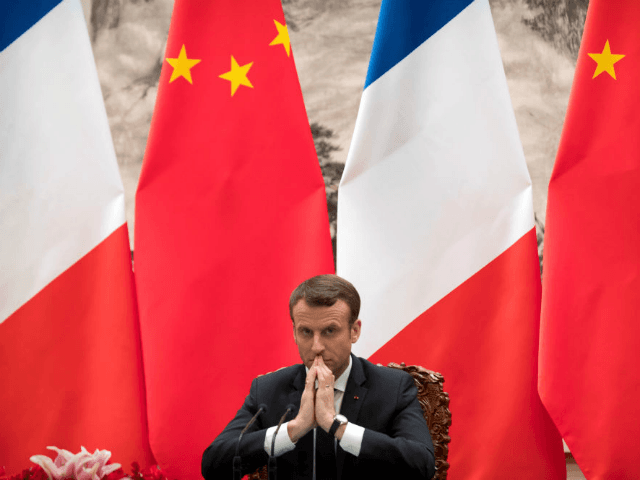Experts and advocates for a free press have branded French plans to outlaw so-called fake news hypocritical and an affront to human rights.
Campaigners say that President Emmanuel Macron’s proposals — which include measures which would allow the French government to block whole websites during election cycles, in the name of ‘protecting liberal democracy’ against inaccurate news reports — cross the line into authoritarianism.
Press freedom watchdog Reporters Without Borders said that while the group is “not opposed to the principle of a law against fake news”, it warned against measures which could curtail “the freedom to reveal things”.
Head of the organisation, Christophe Deloire, told The Associated Press (AP) that while he believes that democracies “have to be protected from the fake news wave”, he believes it would be wrong for France to go about this task “with the ways that despotic countries use”.
The choice couldn't be clearer https://t.co/v8NQpWq7Wj
— Breitbart London (@BreitbartLondon) March 2, 2017
In his new year’s speech to journalists, Macron said he was ordering a new “legal arsenal” of measures against so-called fake news including further transparency from social media companies on sponsored content that would force tech companies to reveal the financial sources of sponsored content.
“If we want to protect liberal democracies, we must be strong and have clear rules,” he said, speaking at the at the Élysée Palace. “When fake news is spread, it will be possible to go to a judge … and if appropriate, have content taken down, user accounts deleted and ultimately websites blocked.”
Without naming Central European nations Poland and Hungary which pledge to protect their native citizens and resist European Union (EU) orders to take in third world migrants, Macron said that curbs on “fake news” are required to battle “the temptation towards illiberal democracies”.
Edinburgh Napier University law lecturer Zhongdong Niu said that it is better to deal with “fake news” using defamation law and media regulations, warning plans to legislate against the phenomenon would likely fail on human rights grounds.
Looking to Macron’s proposal to “regul[ate[ fake news no matter where it is published”, the academic argued that attempts to restrict political speech on social media breaches article 10 of the European Convention of Human Rights which “protects free expression, only allowing restrictions on public interest grounds”.
Trump More Popular Than ‘Establishment’ Euro Leaders Merkel and Macron https://t.co/EN5y2FzuOc
— Breitbart London (@BreitbartLondon) November 20, 2017
“When you talk about clamping down on fake news, you are basically talking about regulating online press and social media,” said Niu, writing in The Conversation.
“You expect a higher degree of free speech on social media because these sites are an essential alternative source of news free from the control of corporate powers. Enhance the regulation of this sphere and you are in danger of stifling lively online debate.”
The proposals were also criticised by French philosopher Alain de Benoist, who compared Macron’s plans for the media to the Ministry of Truth in George Orwell’s novel 1984.
“And let’s not forget that the mainstream media, which today prides itself of ‘debunking’ fake news among others, had always been the first to relay government lies such as Saddam Hussein’s ‘weapons of mass destruction’,” he wrote.
But Mounir Mahjoubi, the French government’s head of digital affairs, insisted leaders could not be complacent, telling the AP that politicians in Europe must “work all together on what can be done” to fight so-called fake news.

COMMENTS
Please let us know if you're having issues with commenting.